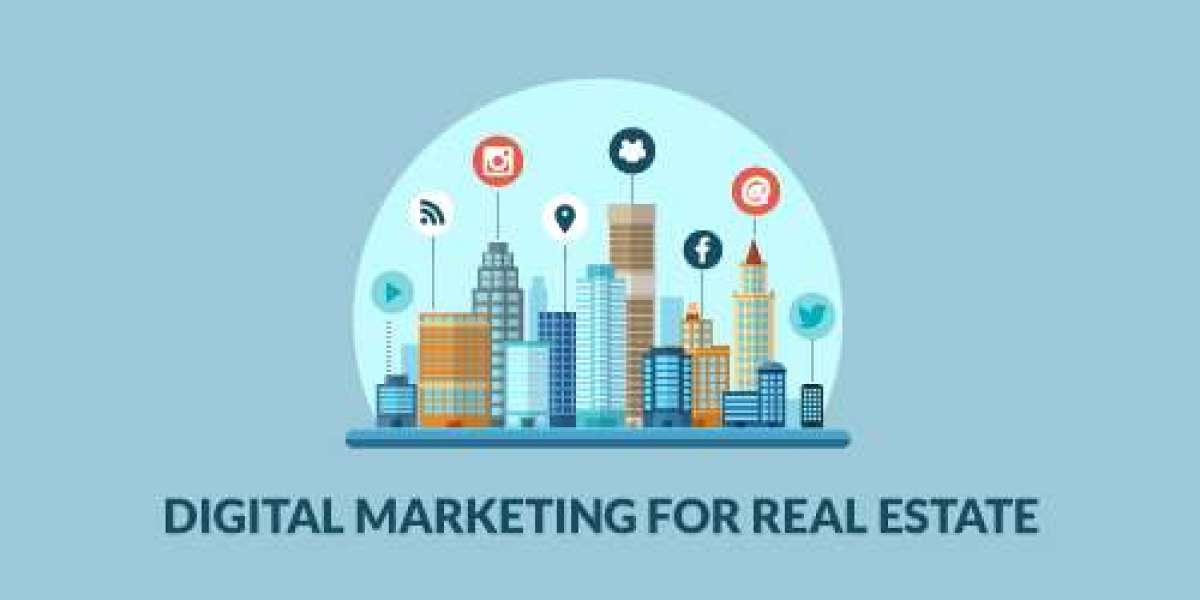Digital marketing has become increasingly important for businesses of all sizes over the past decade. With people spending more time online and on mobile devices, digital channels now represent the primary means for brands to reach customers. Done correctly, digital marketing can help grow brand awareness, generate leads, and drive sales while providing valuable insights into customer behavior.
For real estate agents and brokers, an omnichannel digital marketing strategy is essential for success in today’s competitive industry. Whether you’re a small independent agent or a large agency, digital technologies offer powerful tools to connect with homeowners and home buyers. By embracing digital, real estate professionals can stay top of mind with potential clients and vastly expand their reach.
What is Digital Marketing?
Digital marketing refers to marketing efforts that utilize electronic devices and the Internet. Some common digital marketing channels include:
- Search engine optimization (SEO) – Optimizing your website’s on-page elements, external links, and content to rank higher in search engine result pages (SERPs) organically.
- Social media marketing – Creating and sharing compelling content across platforms like Facebook, Instagram, LinkedIn, YouTube, etc. to engage prospective clients and build your brand.
- Pay-per-click (PPC) advertising – Placing ads on search engines and social networks that appear when people search for related terms. You only pay when someone clicks on your ad.
- Email marketing – Sending targeted emails to your contact list and subscribers to stay top-of-mind, share property listings, and promote your expertise.
- Content marketing – Developing useful, informative content like blogs, videos, infographics, and eBooks to attract and educate audiences and boost organic search visibility.
- Website optimization – Ensuring your website loads fast, is mobile-friendly, and easy to navigate to provide the best user experience.
The goal of digital marketing is to reach audiences and potential clients online through engaging content and conversations where they’re actively searching and spending time digitally. It’s a highly measurable way to track results and optimize efforts over time.
Why Digital Marketing Matters for Real Estate Businesses
There are several compelling reasons why real estate professionals need a strong digital marketing presence and strategy in place:
Expand Your Reach and Visibility – With over 95% of home searches now starting online, digital channels allow you to effectively market your brand and listings to a vastly larger potential client base beyond your local area.
Remain Competitive – In today’s real estate industry, consumers have more choices than ever before thanks to the internet. If you’re not proactively marketing yourself digitally, potential clients won’t find or choose you over competitors who are online.
Tap into Consumer Behavior Shifts – People research, compare options, and make major purchasing decisions like buying a home extensively online first before contacting an agent. Your digital presence must meet clients where they’re already actively searching.
Generate Quality Leads – Through strategic digital advertising, content creation, and social media engagement, you can attract highly qualified potential home buyers and sellers predisposed to doing business with you based on your online expertise and service.
Provide Valuable Market Insights – Tools like your website analytics and social media metrics give a deeper understanding of what homeowners and buyers in your target communities are most interested in. This intelligence helps you craft more tailored, persuasive messaging.
Strengthen Brand Awareness – Consistent digital activities help elevate your profile as a top-rated, knowledgeable real estate expert. The stronger the awareness of and trust in your brand, the more likely clients will choose to work with you.
Optimize Marketing ROI – Digital channels provide actionable data to evaluate what tactics are most effective so you can optimize spending and focus resources on high-converting activities with the best return on investment.
Simply put, real estate agents must establish an online presence through digital marketing or risk losing business to competitors who do. Done strategically, digital offers unmatched scale and insights to grow long-term success.
Key Elements of an Effective Digital Marketing Strategy
While digital enables you to reach global audiences, the most impactful strategies zero in on your target hyper-local communities and clients. Here are some pillars of an effective digital marketing plan tailored for real estate professionals:
Search Engine Optimization (SEO) – Having optimized listings, pages focused on high-intent keywords, and regularly published fresh content keeps your website ranking at the top of search results.
Social Media – Engaging followers across Facebook, Instagram, YouTube, and LinkedIn with properties, market updates, educational tips, and client testimonials through organic and paid posts. Live videos are especially popular for real estate.
Pay-Per-Click Advertising – Targeted PPC ads on Google, Facebook, and other networks directly reach homeowners and buyers actively searching online with geofenced ads focused near listings.
Email Marketing – Nurturing leads and past clients with curated newsletters highlighting new properties, market reports, and your expertise through an email autoresponder series.
Blogging – Providing value to readers with in-depth real estate guides, community overviews, process explanations, and other educational blog content optimized for SEO.
Website Optimization – Ensuring your site loads fast on all devices, is easy to navigate, and collects leads with smooth call-to-action buttons.
Analytics Reporting – Tracking website, social, and ad performance and ROI through Google Analytics and other tools to refine strategies.
Video Marketing – Engaging 3D/virtual tours, walkthroughs, and short educational clips posted to your site and shared across networks builds trust.
An integrated digital plan touching on these key areas gives real estate professionals a comprehensive, multi-channel approach to reach prospects and stay top-of-mind with past clients. Regular evaluation of metrics helps optimize resources over time.
Frequently Asked Questions
Q: How much should I budget for digital marketing?
A: While budgets vary by business size and goals, most experts recommend allocating at least 5-10% of your total annual marketing spend to digital. It’s wise to start smaller at first to measure ROI before scaling up investments.
Q: What are some effective content ideas for real estate social media?
A: Helpful topics include virtual open houses, neighborhood guides, home value updates, how-to DIY projects, interior design tips, and QA sessions answering common buyer/seller questions. Videos and visuals like property and community photos typically see higher engagement.
Q: How long until I see results from digital marketing?
A: Most experts agree it takes at least 3-6 months of consistent effort across several channels to start seeing worthwhile leads and sales derived from your digital activities. Be patient, measure progress, and adjust tactics accordingly over time for maximum ROI.
In Conclusion
As the real estate industry becomes increasingly consumer-driven and digitally focused, agents and brokers must adopt comprehensive online marketing strategies to remain competitive. Those who embrace digital and the data it provides gain vital insights that translate to stronger client relationships and long-term business growth. While it requires ongoing effort and evaluation, digital marketing offers unmatched global reach and local targeting capabilities to propel real estate brands forward in today’s marketplace. For any business, having an active digital presence has never been more important.









